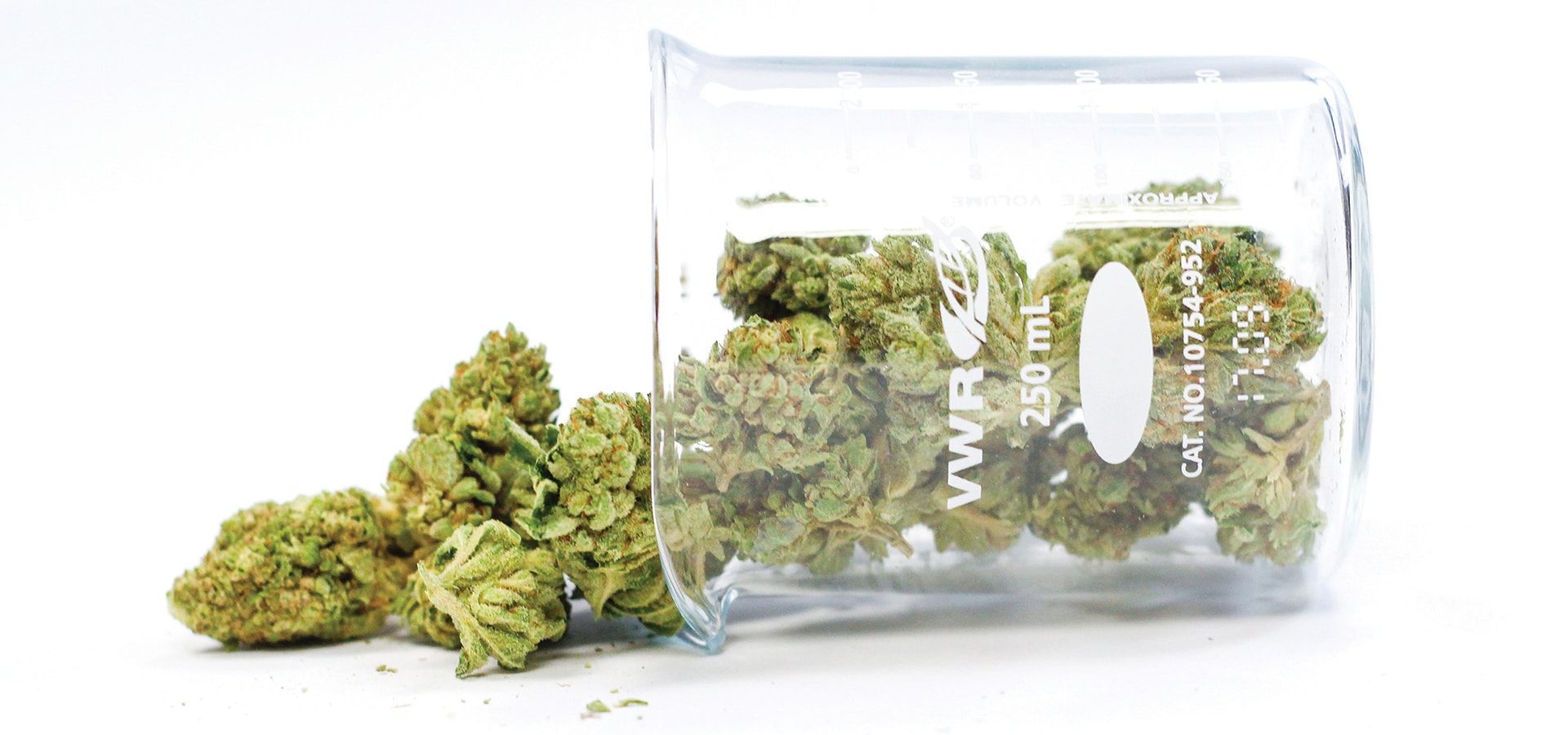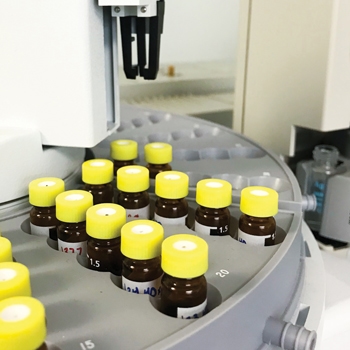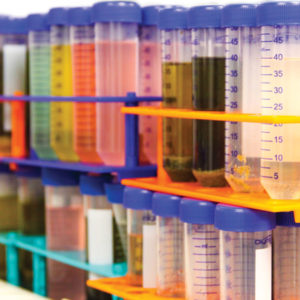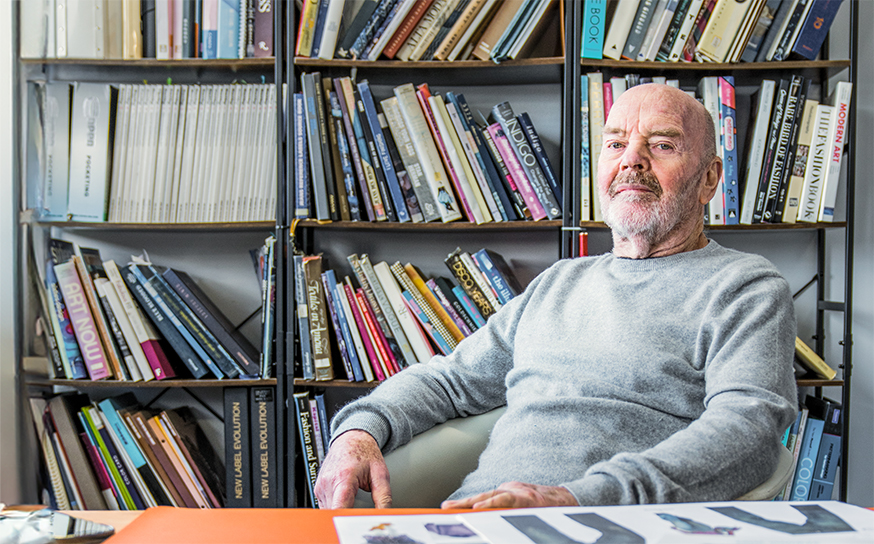
Take a Trip to Encore Labs in Pasadena and Learn about the Meticulous Cannabis Testing Process
It’s all about keeping unsafe products off shelves.
 Mary Beth Smith is a laboratory analyst at Encore Labs in Pasadena, one of the first licensed cannabis compliance labs in California, and in recent years an increasingly busy hub. Here she shares with VB editor Linda Grasso the meticulous process cannabis products must go through before they can be sold at dispensaries in the state (the CBD industry does not have the same regulations) and addresses recent health concerns about vape pens.
Mary Beth Smith is a laboratory analyst at Encore Labs in Pasadena, one of the first licensed cannabis compliance labs in California, and in recent years an increasingly busy hub. Here she shares with VB editor Linda Grasso the meticulous process cannabis products must go through before they can be sold at dispensaries in the state (the CBD industry does not have the same regulations) and addresses recent health concerns about vape pens.
 Share a bit about Encore Labs.
Share a bit about Encore Labs.
Most of our clients are cannabis distributors—licensed companies who purchase cannabis from cultivators and manufacturers and then package and sell their products to dispensaries. California’s Bureau of Cannabis Control (BCC) requires that cannabis products sold in a licensed dispensary be tested for cannabinoid potency, heavy metals, microbial impurities, moisture content and water activity, mycotoxins, residual pesticides, residual solvents and processing chemicals, foreign materials and, optionally, terpenes (organic compounds produced by a variety of plants).
How do California’s regulations compare with those in other states?
Each state with legalized cannabis use has their own compliance regulations. I know California’s are stricter than some. I wouldn’t hesitate to buy legal products from other states. When we reach the level of national legalization, there may be one unified set of standards similar to those set by the FDA for food and pharmaceuticals.
What are the most critical tests for cannabis products?
The most important tests are for pesticides, metals, solvents and potency. Pesticide failures are not uncommon in this industry, and not just for flower but for vape cartridges and other concentrates too. When manufacturers strip cannabis flower to make concentrated THC products, they can also be extracting high levels of pesticides and heavy metals (e.g., lead and mercury). Metals can leech into cannabis from ground water, soil and even the cartridge itself if a manufacturer isn’t careful with their wholesale purchases. Solvents like butane and isopropyl alcohol are necessary in these extraction processes, so we test for them in the finished products. The BCC sets very low limits for the most harmful, carcinogenic pesticides and solvents, so it’s important for us to be able to detect them. With potency, people need to know how strong the products are that they are using. Trust me, you wouldn’t want to eat what you thought was a 10-milligram gummy when it was actually 100 milligrams.
When you test for quality, what are you looking for?
I believe anything that passes BCC regulations in an ISO-accredited lab like ours is a quality cannabis product. Sure, some have higher potency levels than others and some may have a bit of residual solvents present, but these regulations are relatively strict. I’ve heard manufacturers of edibles have trouble finding things like fruits and flavorings that pass these tests. That’s how tough it is to get a product into a licensed dispensary.
What does testing for potency entail?
We test for 10 different cannabinoids including three forms of THC and two forms of CBD. Each has an acid precursor that exists as potential THC or CBD that must be heated or otherwise converted into its active form. That’s why users must smoke and vape these products. We also test for less common cannabinoids like CBN and CBG that are still being studied for their therapeutic effects in conjunction with a strain’s THC, CBD, and terpenes. There’s some evidence to suggest all these compounds work together to form one “entourage effect” on users—hence the preference for one strain or another based on the experience.
What are the risks of buying unregulated cannabis?
Labs like ours exist to protect consumers. In the same way a drug dealer might cut a batch of cocaine with something else to stretch the product, one can expect black market cannabis dealers to bend the rules as well. In the short term, one might experience chest pains or other respiratory issues, and in the long term there is a cancer risk associated with being exposed to some of the most harmful pesticides and solvents, not to mention lead poisoning. It’s certainly something to consider when it comes to legalization.
What else should consumers do to ensure safety?
First and foremost, check that your favorite dispensary has a license. The BCC has a site to search all cannabis license holders: capotcheck.com. Illegal dispensaries are not uncommon, and their products are as unpredictable as buying off the street. A lot of cannabis products feature a QR code on the packaging that links to the certificate of analysis the distributor got from a testing lab. I’d encourage users to pull up the certificate for products they purchase to compare the results and even track how certain products affect them.
 Why is there no organic cannabis?
Why is there no organic cannabis?
For a product to be certified organic, it must be produced in certified organic facilities, and there are no certified organic cannabis production facilities yet. I’m sure it’s in the works.
With regard to the cannabis that Encore tests—what products is it mostly used for?
We test a lot of flower that’s sold as flower or sold to manufacturers, but we mostly test things in their final form before they are stocked on shelves. We’ve tested everything from toothpaste to CBD dog treats to nasal sprays to suppositories to mascara. The most common things we test outside of flower and pre-rolled joints are cartridges, edibles like chocolates and gummies, and high-potency concentrates like rosin, shatter and badder.
 I’m assuming your job is pretty busy these days.
I’m assuming your job is pretty busy these days.
Yes, we have stayed very busy this year (especially around weed-related holidays like 4/20 and 7/10). There are a lot of labs still working on their accreditation and licensing to keep up with distributors who need to get testing done, so it’s nice to be a bit ahead of the game. Our clients want to get their finished products onto shelves ASAP, and we are the last barrier to that. So it’s important for us to do our jobs both efficiently and accurately.
What are your thoughts on the news about the vape pens that have caused some people to get sick?
I think the biggest culprits in the vape-related illnesses are from black market products. I’ve seen early conclusions that the worst cases have been linked to Vitamin E, which was being used to cut THC oil in cartridges without losing the desired thickness. Some labs in California are implementing Vitamin E testing, and our lab is considering it as well. I don’t think it’s a common problem in the California market, but the best advice I can give to vape users is do not buy black market or off-brand vape cartridges, for cannabis or otherwise. Vitamin E seems healthy, but it was never meant to be vaporized into your lungs. Prohibiting the sale of vapes would lead to even more unregulated products, so I hope this instead leads to an emphasis on safe, legal options across the country.
Architect May Sung Comes to The Rescue on a Studio City Reno Gone Wild
In the right hands…finally!












